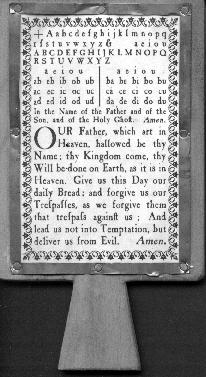 Almost all early American education was private. That which was paid for by taxes, particularly in New England, was still local and controlled by a committee that reflected the beliefs of the towns. Early Americans weren’t attracted to the idea of government-sponsored and/or -controlled education.
Almost all early American education was private. That which was paid for by taxes, particularly in New England, was still local and controlled by a committee that reflected the beliefs of the towns. Early Americans weren’t attracted to the idea of government-sponsored and/or -controlled education.
Why were they resistant to this idea?
Three reasons come to the forefront:
- They feared that a government-controlled education system would impose a uniformity of thoughts that would endanger liberty;
- They believed that education was the proper domain of parents, church, and locality, not the state;
- Further, they were concerned about the cost of such a system; they instinctively understood that the system would require more money than was currently being spent, and they were not willing to pay the taxes it would demand.
Yet the common school movement tried to change that perception. Proponents argued that the growing nation needed a more systematic approach to education that would ensure students learned the skills they needed for life, receive the ethical instruction essential for living in society, and be trained to be responsible citizens, since Americans had the privilege of choosing their own government.
Of course there’s an assumption here—that Americans were not getting these skills, ethical instruction, or knowledge of how to be good citizens. Hadn’t the history of America up to this point made it clear that the majority were skilled, ethical, and responsible citizens?
Regardless, there were certain groups determined to engineer this historic shift from private to public [government-controlled] education. One of those groups was the Unitarians.
 Unitarians didn’t accept the divinity of Jesus, they didn’t believe the Bible was a revelation directly from God, and they denied the supernatural elements depicted in the Bible. They were concerned that education was dominated by the orthodox Christian churches. That needed to be changed because it was “too sectarian.”
Unitarians didn’t accept the divinity of Jesus, they didn’t believe the Bible was a revelation directly from God, and they denied the supernatural elements depicted in the Bible. They were concerned that education was dominated by the orthodox Christian churches. That needed to be changed because it was “too sectarian.”
Unitarians also maintained that man could be perfected through education and that if we just make education a priority, we could cure all the evils in society. Well, they definitely had faith of a certain type, but it was in a man-created, earthly utopia.
How did the Unitarians attempt to impose their agenda? I’ll cover that in a future post.
